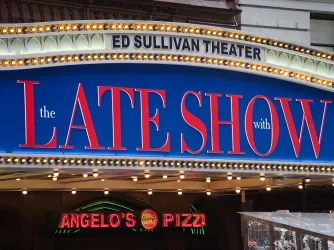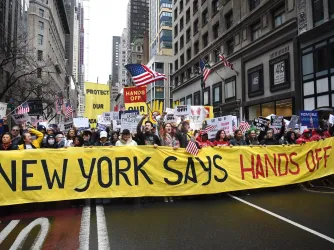Table of Contents
Sliding Down the Slippery Facebook.com Slope
This morning, I nearly choked on my coffee when I read a story in The Daily Collegian that discussed a demand from the NCAA and PSU to a student to shutdown a Facebook.com group that advocated for a prospective student athlete to attend Penn State. According to the article, the student creator of the group, John Bove, received an email from the PSU NCAA Compliance Coordinator that demanded the group be shut down immediately because it could be perceived as violating recruiting regulations.
It is beyond me how private speech by a student, who does not appear to be connected in any official way to the recruiting process, can somehow be construed to violate NCAA recruiting regulations. Effectively, this action means that universities are policing Facebook.com and other social networking sites to avoid violating athletic recruiting regulations. If universities choose to monitor social networking sites for this reason, what is to stop them from expanding the scope of this monitoring program? What is next—regulating groups which the university perceives as offensive or that hold ideas or values that run counter to university orthodoxy?
To some this may seem far-fetched, but unfortunately actions such as this are becoming more commonplace. FIRE has been forced to intervene in many cases to protect the online free speech rights of students and faculty. In one case at the University of Central Florida, a student was brought up on charges for creating a Facebook.com group which called a fellow student government candidate “a jerk and a fool.” In another incident, Johns Hopkins University severely disciplined a student who posted an offensive Halloween party invitation on a Facebook.com group.
One thing is for sure, if actions such as this continue, it will only result in more controversy. Stay tuned for further developments as FIRE looks into this apparently burgeoning trend.
Recent Articles
Get the latest free speech news and analysis from FIRE.

He refused to censor his syllabus — so Texas Tech cancelled his class
In another blow to academic freedom in the Lone Star state, Texas Tech canceled a psychology class after the professor refused to scrub race and gender from his syllabus.

Fandom’s lighthouse in a sea of censorship
In the storm of internet censorship and cancel crusades, the fanfic database Archive Of Our Own (AO3) has become a lighthouse of artistic expression.

FIRE statement on Stephen Colbert’s James Talarico interview and continued FCC pressure
Brendan Carr used to say that the FCC cannot act as the nation’s speech police, but now that he is chairman he has worn the badge proudly.

Deep dive into New York’s proposals to ban demonstrations near houses of worship
Core among the rights protected by the First Amendment is the right to demonstrate.